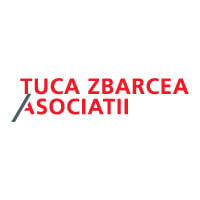

Head of legal | AFI Europe Romania



Bianca Stamatoiu
Head of legal | AFI Europe Romania
Bio
Accomplished head of legal with over 18 years of expertise in steering complex legal matters within the real estate development sector. A strategic advisor with a proven track record in property acquisition, banking and finance, construction law, leasing, and mergers and acquisitions, delivering solutions that align legal strategy with business growth. Skilled in navigating regulatory frameworks and driving compliance while advancing organisational objectives. Demonstrated leadership in building and leading high-performing legal teams and cultivating cross-departmental partnerships. Active member of the Bucharest Bar Association since 2000, committed to the highest standards of ethics and legal excellence. Recently completed the prestigious Leadership in Corporate Counsel program at Harvard Law School Executive Education, further enhancing capabilities in leading legal functions at the executive level.
How do you approach managing legal aspects during periods of instability or crises, and how does your legal strategy align with the broader business strategy to ensure the organisation’s resilience?
During periods of instability or crises, I adopt a proactive and adaptive approach to managing legal aspects. This entails monitoring of regulatory changes, anticipating potential legal risks in different fields, and formulating contingency plans to address diverse scenarios. My legal strategy is aligned with the overarching business strategy, concentrating on maintaining compliance, safeguarding the organisation’s assets, and facilitating strategic decision-making.
To ensure resilience, together with my team, we engage in close collaboration with key stakeholders across the organisation to comprehend their needs and challenges. This enables us to provide tailored legal advice that not only mitigates risks but also supports business continuity and growth. Regular communications are conducted to keep the team informed and prepared for their specific legal implications that may arise during crises.
By integrating legal considerations into the strategic planning process, we can identify opportunities to leverage legal frameworks to our advantage, ensuring that the organisation remains agile and competitive in safeguarding the organisation’s interests.
What measures has your company taken to embed sustainability practices into its core business operations, and how does the role of the general counsel contribute to driving and ensuring sustainable practices within the company?
Our company has implemented several measures to embed sustainability practices into its core business operations. Firstly, we have integrated environmental, social, and governance (ESG) criteria into our business strategy, ensuring that sustainability is a key consideration in all decision-making processes. This includes setting measurable goals for reducing our carbon footprint, increasing energy efficiency, and promoting the use of renewable resources.
My personal role is pivotal in driving and ensuring these sustainable practices within the company. I oversee together with my legal team the compliance with all relevant environmental regulations and standards, providing legal guidance to ensure that our sustainability initiatives are both effective and lawful. Additionally, we collaborate with various departments to develop and implement policies that promote ethical and sustainable business practices. This includes conducting assessments to monitor our progress and identify areas for improvement.
By aligning our legal and business strategies with our sustainability goals, we can foster a culture of responsibility and accountability, ensuring that our commitment to sustainability is upheld at every level of the organisation.
What emerging technologies do you see as having the most significant impact on the legal profession in the near future, and how do you stay updated on these developments?
Several emerging technologies are anticipated to transform the legal profession. Foremost among these are Artificial Intelligence (AI) and Machine Learning (ML), which are revolutionising tasks such as legal research, document review, and predictive analytics. AI-driven tools are capable of analysing extensive legal data, identifying patterns, and providing insights that considerably reduce the time and effort required for complex legal tasks. Additionally, Blockchain technology presents substantial potential, particularly in the realms of smart contracts, secure data storage, and transaction verification. This technology offers a decentralised and tamper-proof system, thereby enhancing transparency and trust within legal processes.
To remain informed on these developments, I employ a comprehensive approach. This includes subscribing to prominent legal technology journals and newsletters, attending industry conferences and webinars, and engaging in professional networks and forums. Additionally, I actively engage in online courses to continuously deepen my knowledge of emerging technologies and encourage my team to do the same. One noteworthy methodology I’ve discovered during my studies at Harvard is Dragonfly Thinking, which fosters innovative problem-solving.
This commitment to ongoing learning ensures that I remain at the forefront of technological advancements in the legal field, enabling us to leverage cutting-edge tools and approaches effectively.
In your opinion, what are the main trends that are salient in your country currently (these can be legal, political, economy or business-based)?
One prominent trend especially for the real estate sector is the transition towards renewable energy and sustainability. There is an increasing focus on reducing carbon footprints and investing in green technologies, driven by both governmental policies and consumer demand. This has resulted in substantial investments in solar, wind, and other renewable energy sources.
The political landscape is increasingly marked by polarisation and the rise of populist movements, resulting in a more fragmented and contentious environment. Debates are intensifying around key issues such as social justice and economic inequality, alongside more specific concerns like urban planning, particularly in Bucharest. This evolving dynamic reflects deeper divisions and competing visions for the future, shaping the direction of policy and public discourse.
Economically, a significant trend is the digital transformation and the adoption of new technologies such as artificial intelligence, blockchain, and the Internet of Things. Businesses are rapidly evolving to utilise these technologies for greater efficiency and competitive advantage.
In the legal field, data privacy, cybersecurity, and AI have emerged as critical concerns. The introduction of new regulations and laws aims to safeguard personal information and secure digital transactions, underscoring the increasing value and complexity of data in today’s economy. This shift highlights the need for robust legal frameworks to address the challenges posed by rapidly evolving technologies and their impact on businesses and individuals.
Head of legal | AFI Europe Romania